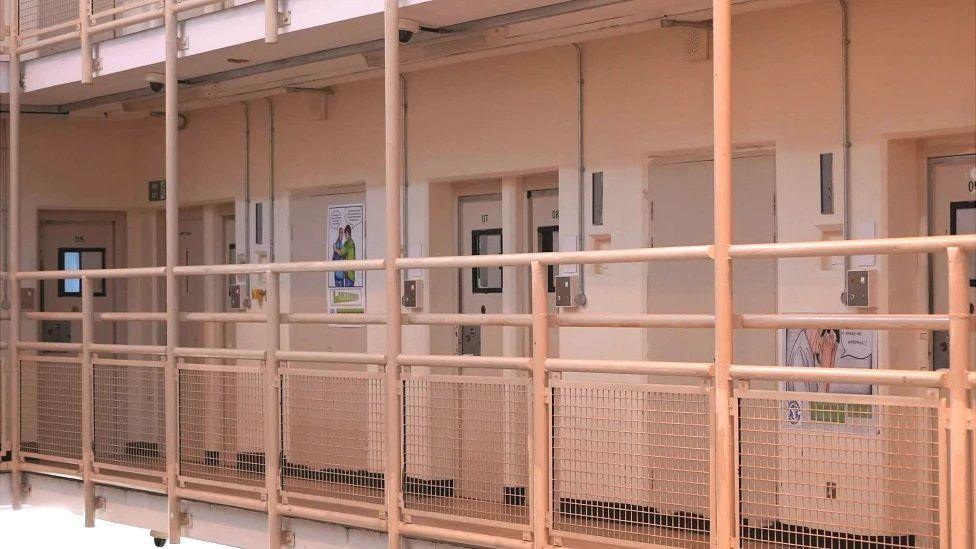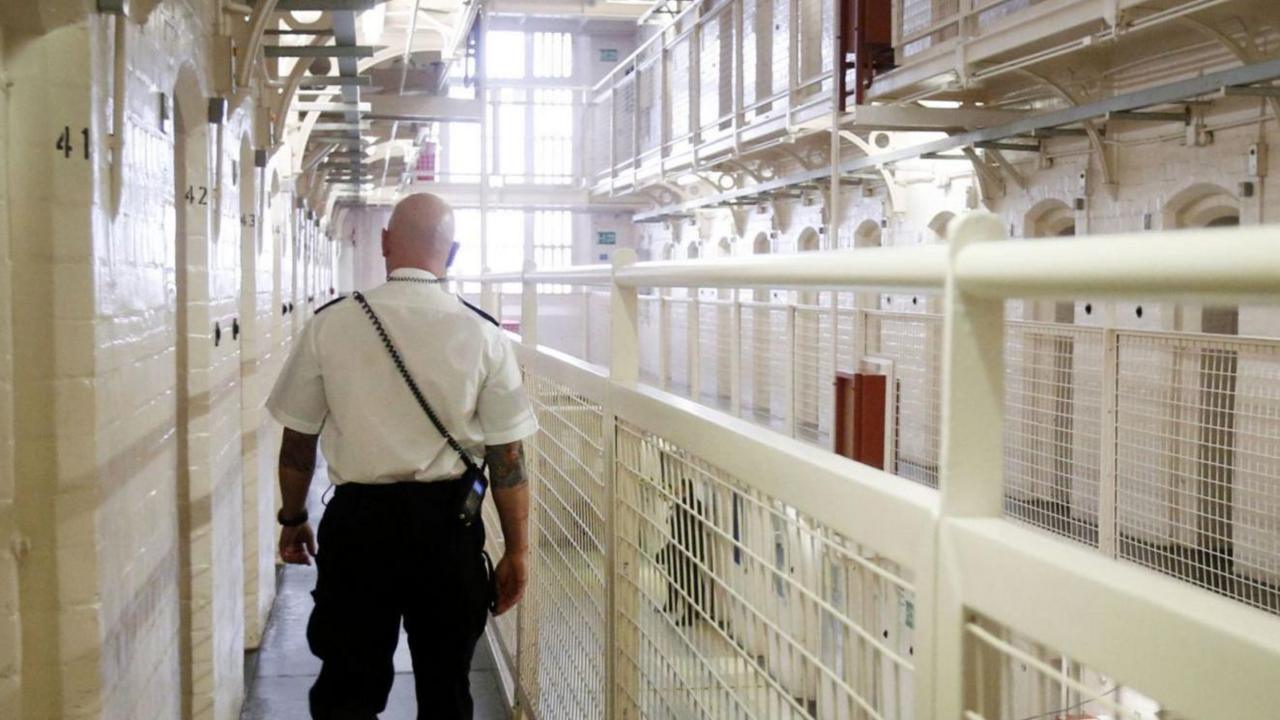Surge in call-outs for specialist prison squad
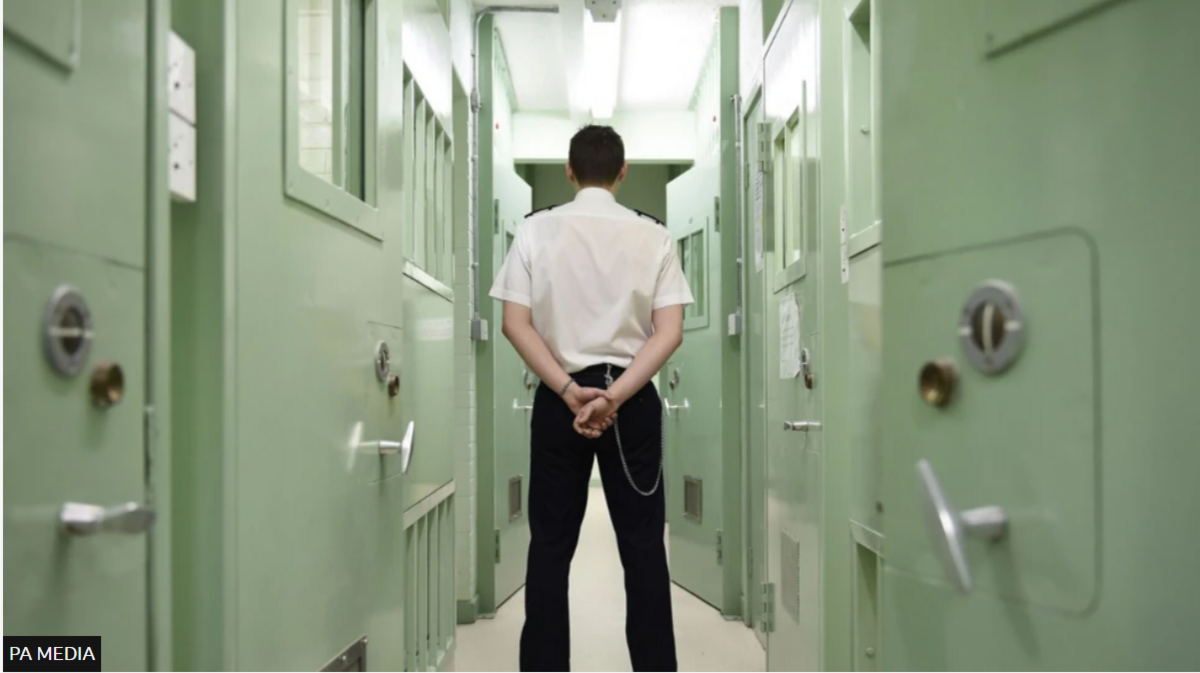
The specialist national team the NTRG was deployed 44% more in 2024 compared with 2022
- Published
There has been a sharp increase in the number of times a specialist team that deals with serious incidents in prisons has been deployed in England and Wales, the BBC can reveal.
The National Tactical Response Group (NTRG), was called out 823 times in 2024 compared with 570 deployments in 2022, according to a Freedom of Information request.
The Prison Officers' Association (POA) said there had been problems with concerted indiscipline - an incident in which two or more prisoners act together in defiance of lawful instruction - and violence.
The government said it was investing more in specialist teams to deal with serious incidents.
'More violent incidents'
The NTRG, which is also sent into young offender institutions and immigration removal centres, is a highly trained unit used to dealing with serious incidents such as prisoner barricades, hostage taking and violent disturbances.
In April the team was deployed to Lowdham Grange prison after reports that one inmate threatened to take another hostage.
Geoff Willetts, from the POA national executive committee, said: "There seems to be an increasing need for this group [NTRG] to be deployed due to frequent callouts to address rising prison violence and an ever increasing prison population."
Concerns about prison safety were highlighted by the latest Ministry of Justice (MoJ) figures, which show the number of staff assaulted in adult prisons across England and Wales hit a new peak last year.
The government said a trial into the use of tasers would be launched this summer for specialised officers dealing with serious incidents in prisons.
A recent landmark review by Former Lord Chancellor David Gauke recommended some prisoners could be released after serving just a third of their sentence in a bid to ease prison overcrowding.
One former prison officer in Kent, who wanted to remain anonymous, told BBC South East about the volatility in some jails.
"I've been assaulted myself and I've witnessed colleagues having their life changed because of an assault that wasn't even directed at them," he said.
David, not his real name, said the service had been impacted by the loss of a lot of experienced staff over the last decade.
"I think the biggest tool the prison service got rid of was experience. And unfortunately, you just can't buy experience," he said.
"You can't get people that come through the gates fresh out of college and expect them to have the same experience as someone that's been in the job for 20 years and knows how to deal with someone."
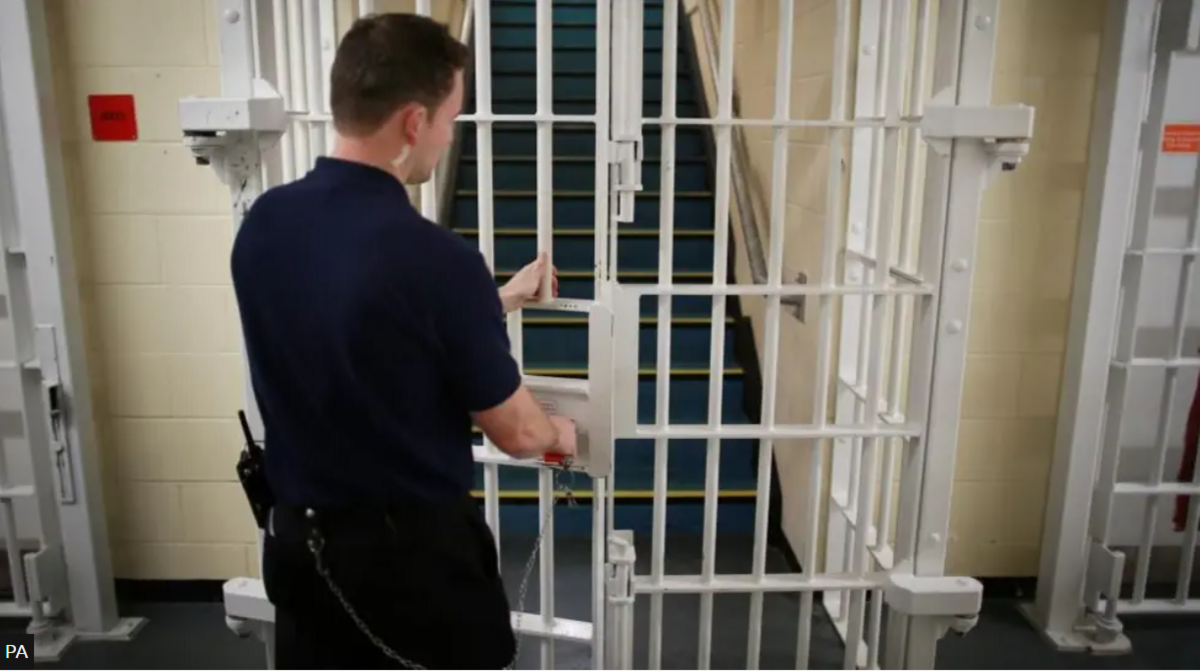
There has been a surge in prison assaults on staff in England and Wales
Steve Gillan, the POA's general secretary, said: "Our members need better training and a return to basics of putting security and discipline first and foremost.
"We need proper protective equipment and better staffing levels to deal with overcrowded prisons.
"There is no doubt that there's been a major increase in incidents at height.
"Prison officers cannot deal with these without the correct equipment and training, that's why NTRG staff are brought in to deal with such situations."

Steve Gillan, who was a prison officer for 34 years, says there has been a large increase in violent incidents
The MoJ said a large proportion of recent NTRG callouts are for incidents at height, which are recorded for any incident taking place above ground level, but are not necessarily violent or confrontational.
Former prison governor John Podmore said protests at height and incidents at height tend to be caused by prisoners who are angry or frustrated.
"At the moment it's highly likely and logical that such incidents would be on the increase because there are a lot of prisoners who aren't getting out of their cell or getting access to education, employment and training," he said.
"In these scenarios frustrations will be on the increase, prison staff are very often less able, because they're new in the job, to deal with such incidents, and that's why they can manifest themselves in protests at height.
"One of the reasons can be prisoners who're in debt because they've been taking drugs and they want to get out of the prison, so if they go on a rooftop protest, there's a very high likelihood they'd be moved out of the prison and for the time being moved away from their debt."

Former governor John Podmore says there is frustration among prisoners who aren't getting out of their cell
President of the Prison Governors' Association Tom Wheatley said the NTRG deployments showed the pressure on the prison system.
"They're very full, not all prisoners are in the places they are supposed to be, they've become frustrated and they protest," he said.
"NTRG come out to incidents at height, prisoners climbing over the railings on the wings, so they're at threat of falling or jumping.
"As frustration rises so does the amount of time those specially trained staff are deployed.
"They [NTRG) have particular training and skills, they can safely rescue prisoners at height and if there's a large scale disturbance they come in as part of the team that comes in to deal with that."
The government recently said more than 1,000 inmates would be released early to free up spaces, as ministers grapple with an overcrowding crisis.
Justice Secretary Shabana Mahmood said a £4.7bn investment would fund more prisons.
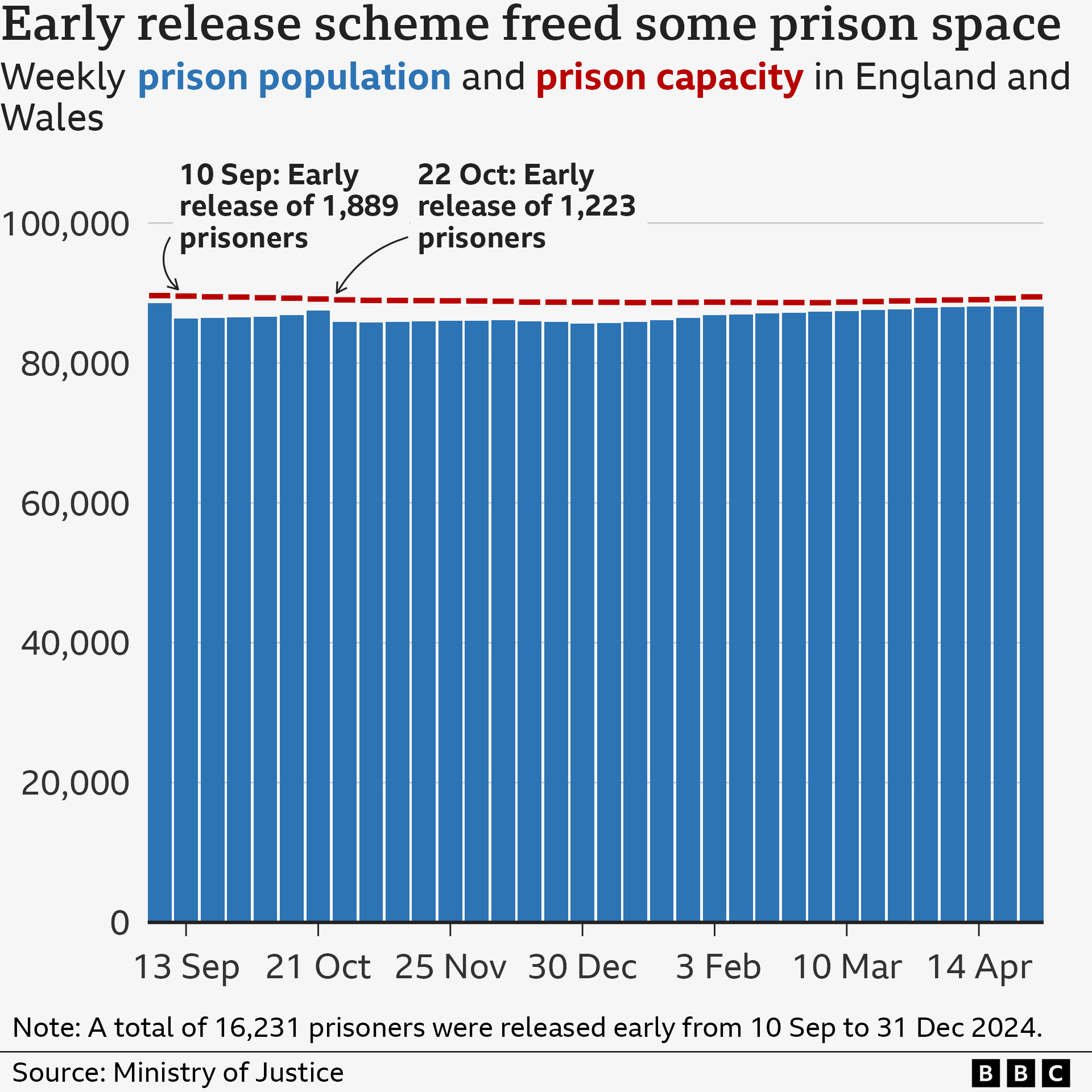
A MoJ spokesperson said: "This government inherited prisons in crisis and the Lord Chancellor has taken immediate action to ensure we can lock up dangerous offenders, protect the public and make prisons safer for our hard-working staff.
"We have a zero-tolerance approach to violence which is why we are investing more into our specialist teams responding to serious incidents and providing staff with the tools they need to keep themselves safe."
Follow BBC Kent on Facebook, external, on X, external, and on Instagram, external. Send your story ideas to southeasttoday@bbc.co.uk, external or WhatsApp us on 08081 002250.
Related stories
- Published15 May
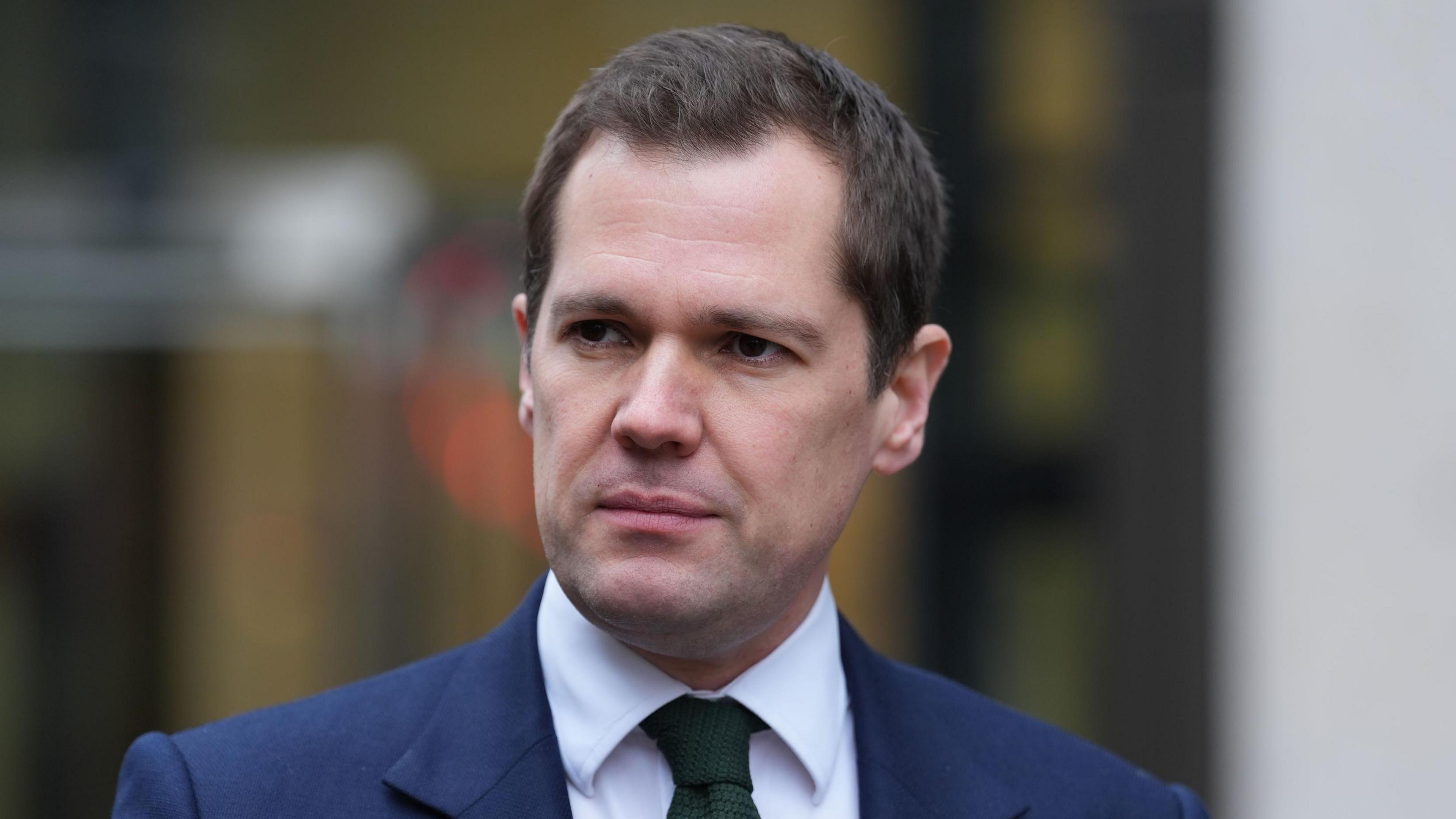
- Published14 May
